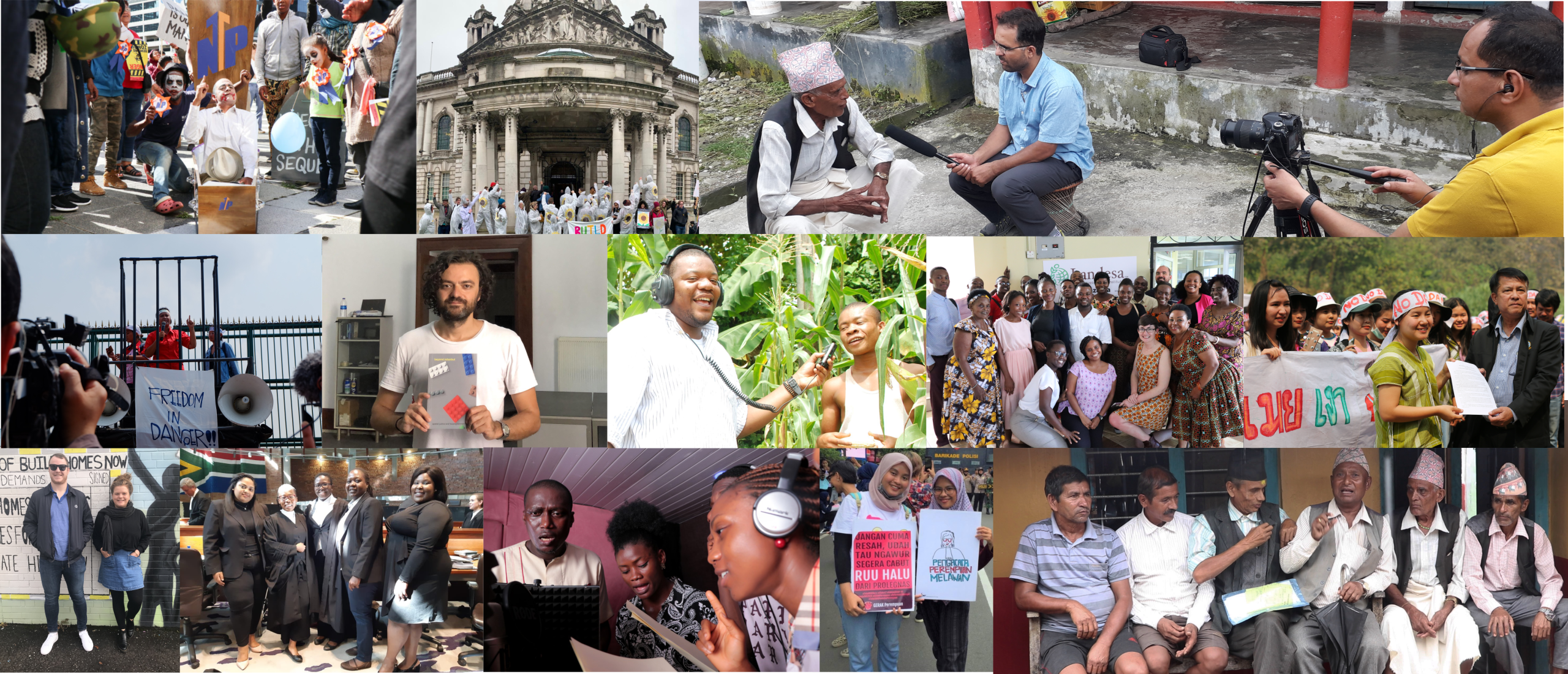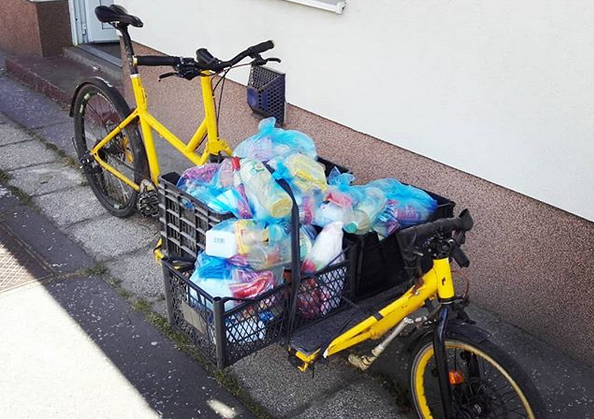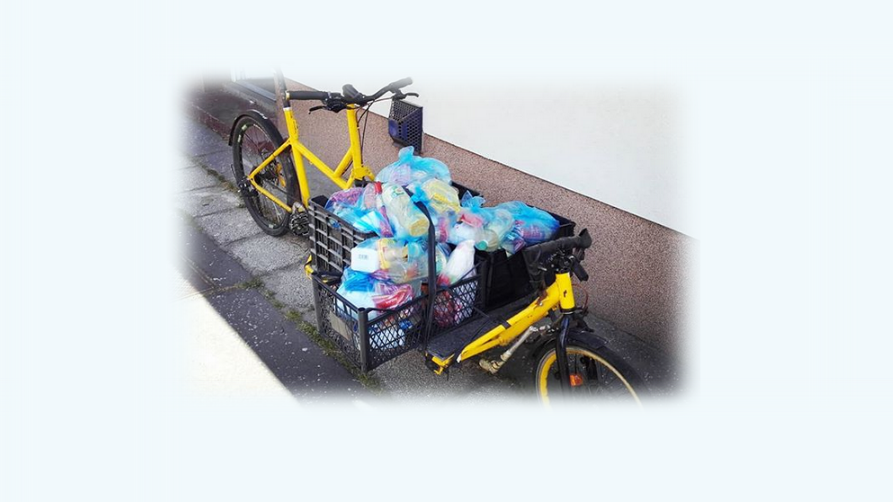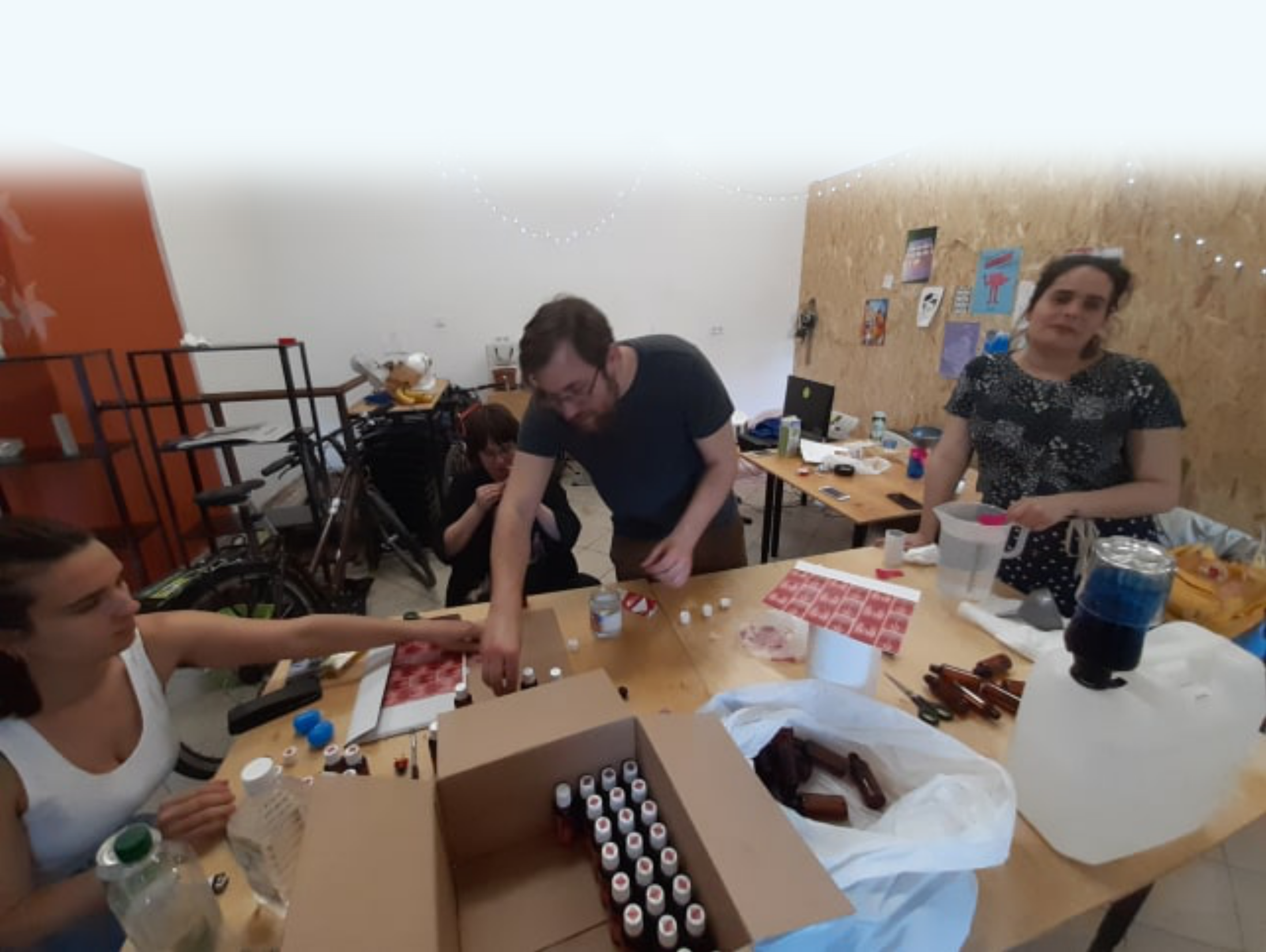Zsuzsanna Pósfai
Hungary

Supported by Bertha’s Covid-19 Emergency Response Fund, Bertha Challenge Activist Fellow Zsuzsanna Pósfai joined a collective set up by activists connected to her host organization to respond to local needs during the Covid-19 pandemic.
Two months before the end of Zsuzsanna Pósfai’s Bertha Challenge Fellowship with host organization Periféria Policy and Research Center, Hungary went into lockdown in response to the Covid-19 pandemic. In the first few days after cases had been confirmed, Zsuzsanna (aka Zsuzsi) worked with activists that she knew through her Bertha Challenge project, who had set up a collective called the Solidarity Actiongroup to address local needs in Budapest.
Bertha Foundation’s Covid-19 Emergency Response Fund offered up to USD $5,000 to Bertha grantees working to address local needs in response to the spread of the virus. Zsuzsi applied on behalf of the Solidarity Actiongroup and was granted the funds to support their collective action.
In the face of inadequate provision of protective equipment from the government, the Solidarity Actiongroup used some of the emergency funding to support a group of volunteers making masks and hand sanitizer for essential workers. They also worked with a Budapest community center, local food markets and agricultural networks to set up a home delivery cooperative, providing fresh produce and food packages to people facing hunger. Besides providing essential supplies, the group’s aim was to build solidarity between essential workers and people affected by the virus.
Two months before the end of Zsuzsanna Pósfai’s Bertha Challenge Fellowship with host organization Periféria Policy and Research Center, Hungary went into lockdown in response to the Covid-19 pandemic. In the first few days after cases had been confirmed, Zsuzsanna (aka Zsuzsi) worked with activists that she knew through her Bertha Challenge project, who had set up a collective called the Solidarity Actiongroup to address local needs in Budapest.
Bertha Foundation’s Covid-19 Emergency Response Fund offered up to USD $5,000 to Bertha grantees working to address local needs in response to the spread of the virus. Zsuzsi applied on behalf of the Solidarity Actiongroup and was granted the funds to support their collective action.
In the face of inadequate provision of protective equipment from the government, the Solidarity Actiongroup used some of the emergency funding to support a group of volunteers making masks and hand sanitizer for essential workers. They also worked with a Budapest community center, local food markets and agricultural networks to set up a home delivery cooperative, providing fresh produce and food packages to people facing hunger. Besides providing essential supplies, the group’s aim was to build solidarity between essential workers and people affected by the virus.

Zsuzsi and the Solidarity Actiongroup were faced with a reactionary political response to Covid-19 from Hungary’s government. It declared a state of emergency, allowing Prime Minister Orbán to rule by decree and introduce new restrictions on what information could be published by the media. In response, the Solidarity Actiongroup focused their efforts on contextualizing the crisis in a way that promoted greater political autonomy in the longer term. The group published articles and produced short videos as part of a communications campaign, analyzing the social and political consequences of the pandemic and looking at other community responses internationally. They set up online forums where people could discuss the issues raised in the articles. They also worked with trade unions to organize both an online May Day event about the safety implications of the pandemic for essential workers as well as potential trade union actions to counter the care and housing crisis.
"The Solidarity Actiongroup was important in terms of raising awareness around the social and economic consequences of the pandemic. We produced writings and webinars on these topics early on, in a period when mainstream news sites were preoccupied by the number of new cases per day. The activities were important in coordinating various actors to help the broader public understand the situation and also to intervene in a practical way."
Zsuzsi Pósfai, Periféria Policy and Research Center

Zsuzsi and the Solidarity Actiongroup were faced with a reactionary political response to Covid-19 from Hungary’s government. It declared a state of emergency, allowing Prime Minister Orbán to rule by decree and introduce new restrictions on what information could be published by the media. In response, the Solidarity Actiongroup focused their efforts on contextualizing the crisis in a way that promoted greater political autonomy in the longer term. The group published articles and produced short videos as part of a communications campaign, analyzing the social and political consequences of the pandemic and looking at other community responses internationally. They set up online forums where people could discuss the issues raised in the articles. They also worked with trade unions to organize both an online May Day event about the safety implications of the pandemic for essential workers as well as potential trade union actions to counter the care and housing crisis.
"The Solidarity Actiongroup was important in terms of raising awareness around the social and economic consequences of the pandemic. We produced writings and webinars on these topics early on, in a period when mainstream news sites were preoccupied by the number of new cases per day. The activities were important in coordinating various actors to help the broader public understand the situation and also to intervene in a practical way."
Zsuzsi Pósfai, Periféria Policy and Research Center

CREDITS
Photo 1: One of Solidarity Actiongroup’s delivery bikes, used to transport food supplies around Budapest. Image: Solidarity Actiongroup
Photo 2: Members of the Solidarity Actiongroup bottling hand sanitizer and making masks for key workers. Image: Solidarity Actiongroup
Authors: The Bertha Challenge Team
Editorial Consultant: Karen Frances Eng
This story was originally published in the Bertha Fellows book and some of the information in this story may have changed since it was first published.


 Built with Shorthand
Built with Shorthand